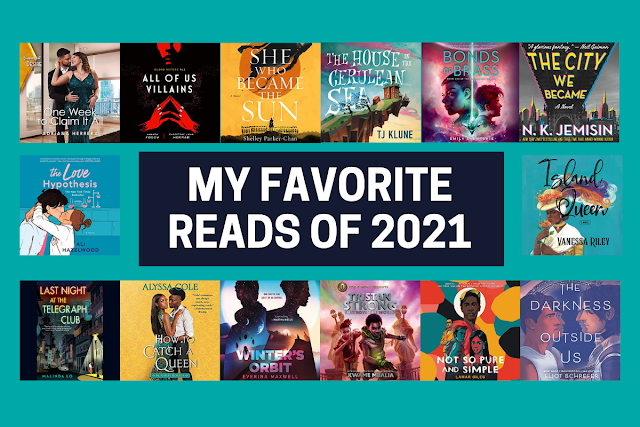Blog Challenge #10: Customer Service and Customer Loyalty
Customer Loyalty: The fact that people choose to use a particular shop or buy one particular product, rather than use other shops or buy products made by other companies. Source: The Longman Business English Dictionary
 |
| Photo credit: The Consumerist |
Customer service is as much about customer loyalty as it is about having a happy customer. A happy customer is a repeat customer and repeat business is what can make the difference in the bottom line for any business. Customers are not just the people walking into your storefront to buy your book, eat your food, buy your product. Customers are also consumers and this definition encompasses everyone from the patron to the store clerk.
Successful businesses know the biggest part of good customer service is dependent upon a happy workforce. While a good salary is important to keep employees, many remain with their employers simply because they feel loyal to their employer. Why? Because their employer has gone out of their way to earn their loyalty. Perks, freebies, gifts, outings, all go a long way toward improving the employer's overall approval rating with their employees. That's why many employers now include things like free coffee bars, free exercise programs, telecommuting options and even simple things like free water bottles and sun visors to keep their employees happy.
customer (n): A person, company, or other entity which buys goods and services produced by another person, company, or other entity.
consumer (n): An individual who buys products or services for personal use and not for manufacture or resale. A consumer is someone who can make the decision whether or not to purchase an item at the store, and someone who can be influenced by marketing and advertisements. Any time someone goes to a store and purchases a toy, shirt, beverage, or anything else, they are making that decision as a consumer.
 |
| Photo credit: Oneras |
Employees are not dumb and we know these perks are just a way to "appease" us when salary hikes don't happen but sometimes, it's those little things that make the difference for an employee thinking of going elsewhere. As I celebrate ten years with my employer, I realize that many of my coworkers (those who have survived the many lay-offs in the publishing industry) have been with the company as long as I have or longer. In fact, we have several employees who are going on their 40th year with our company. They started working in the mailroom as 18-year-olds and since they're not ready for retirement, continue to work in our industry and remain loyal to the company they've served in one capacity or another for four decades.
Many are also very loyal to the companies they do business with. One of my coworkers (who has asked to remain anonymous) has been with the same bank for 40 years. In our economy, with banks gobbling up one another over the past few decades, he's never thought of going elsewhere. He says he's not always happy with his bank but "they've gone above and beyond for me a few times and you reward that dedication to customer service with customer loyalty." It made me think about customer loyalty and how it affects me and my family. My parents, I think, are the quintessential loyal customers.
We were T-Mobile customers for more than 20 years before switching to Sprint. We were with them when they were Aerial, then Voicestream before becoming T-Mobile. Yeah, that far back. When we would call customer service for anything and they pulled up or account and saw how long we'd been with them, they always commented and thanked us for being loyal customers. My mom stayed with T-Mobile even when my father decided to try out Sprint 10 years ago because she said "they've always been good to us." A few times, when our minutes went over for one reason or another, they did their best to work with us and even made changes to our plan mid-contract just to keep us. Then their ownership changed, company policies changed and customer service went downhill pretty quickly. So much so, my Mom actually asked me to look for another company to move our family plan. 20 years with T-Mobile, 5 phones in one plan and more than 20 phones among the family who we told to make the move with us. We moved to Sprint and while their customer service is not stellar, we feel ok there. Of course, when anything goes wrong, she holds me accountable and responsible for anything Sprint does that she doesn't like and that's very parallel to my role as an agent but that's a story for another blog post.
Your readers are consumers and based on the definition above, their buying decisions are influenced by marketing. But so is your decision, as an author, to choose one publisher, editor, agent over another. You are a consumer as well and you choose one opportunity over another based on their "sales pitch" or marketing. Who's selling you the best opportunity?
| Photo credit: andreaarden |
Trading Consumer Loyalty for Customer Loyalty. A lot of small digital presses like to be both bookstore and publisher and have established a "following" at their websites with customers who come and buy books to support their favorite authors knowing authors make a higher royalty rate when their books are purchased via the publisher's bookstore. But the number of customers there are far less than those at the major bookstores. But the truth is, customers shop at the bookstore, not at the publishing house. I have yet to stop in at Random House and shop in their lobby for my favorite books. If your publisher is delaying sales via a wider distribution channel, is it in their best interest or yours?
"But, they've been so good to me." I hear this all of the time when talking to authors "they've been so good to me, I'd like to send it there" and/or "my editor is awesome and I know the publisher has some issues but I want to keep working with him/her". First of all, it's not up to just you to decide where we submit the work. We're a team now and while it's important to know where you feel comfortable having your work, my job is to make sure I get you the best deal for your talent. You are the product AND consumer. If you're going to put another work with that publisher, it should be because you're doing well there and feel like it's the best place for you and your works. Second, your editor can leave tomorrow and your books are stuck at a publisher you weren't exactly "happy with" in the first place so what happens then? Are you willing to be stuck in a miserable relationship with a publisher until your rights revert back to you (if ever)?
| Photo credit: Jason Grote |
Remember, this is a business and the publisher is going to do what they need to do to make money. Your loyalty may not be their priority… but should it be?



In my opinion, I think customer loyalty, either product specific or company specific, is important, and that it must be one of the priorities in businesses. Having a very loyal customer is a plain sign of success of the employees and the whole company in preserving long term relationship with their clients. Come to think of it. Isn’t it nice that even though your customers have so many other options to choose from to purchase their products, they are still loyal to your company?
ReplyDeleteRuby Chelmsford
Hey! I will be looking forward to visit your page again and for your other posts as well. Thank you for sharing your thoughts about customer service jobs. I am glad to stop by your site and know more about customer service jobs. Keep it up! This is a good read. You have such an interesting and informative page.
ReplyDeleteCustomer Service jobs depend on the business you are working for. The basic idea is that you have knowledge of the company and products/services along with a basic understanding of how to troubleshoot the issues, problems, and requests that may come up with those product or services. Normally, if you are being hired directly into a customer service position, you will receive training to prepare you for the possibly questions and scenarios which may arise. As the name implies, you will be dealing with customers on a regular basis. No two customers are exactly the same in what they want or expect... but no matter what, they will want you to care about their issue, be motivated to assist them, and happy to help in any way you can.
We provide information to sales representatives regarding customer ordering patterns, complaints and potential problems.
customer service jobs lowell